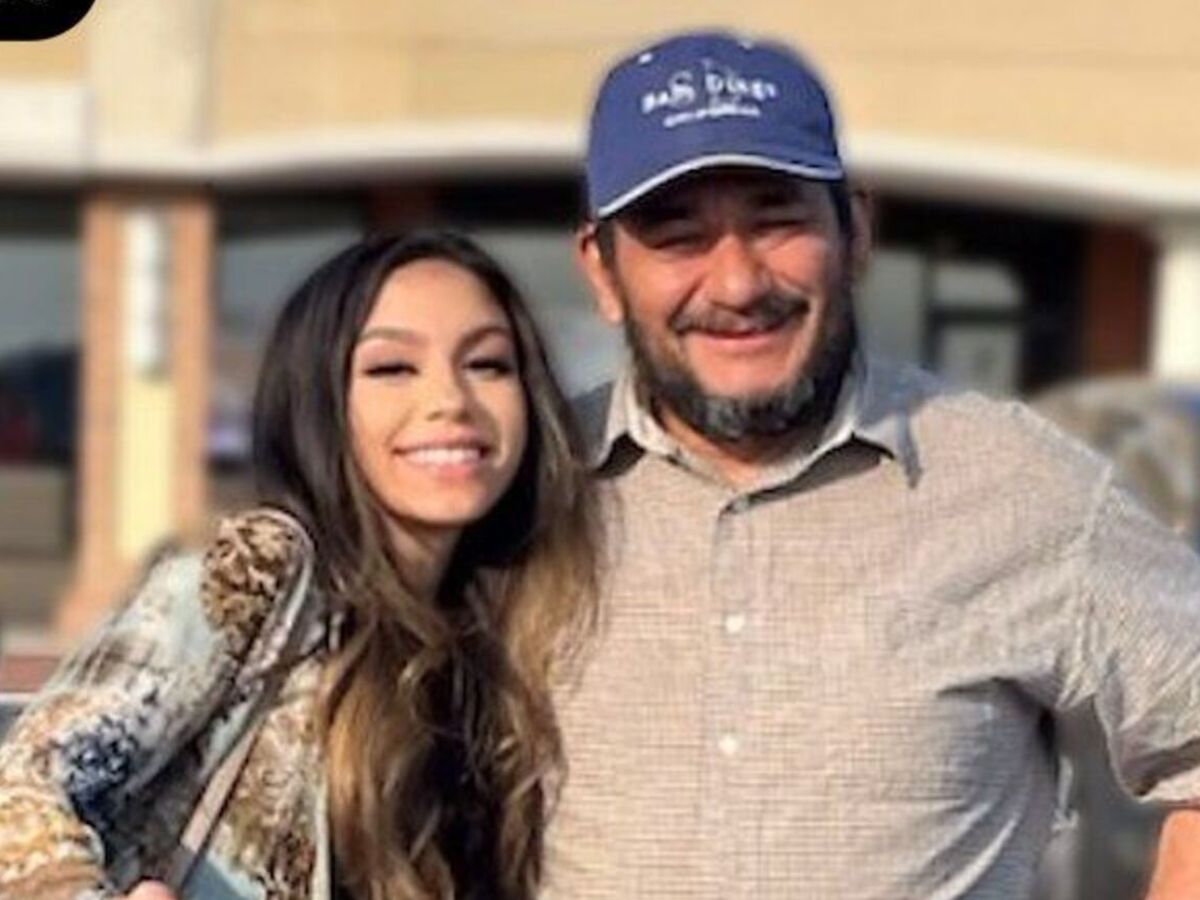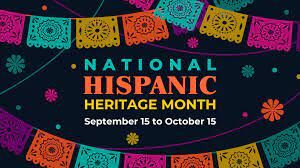Image

by Ashley Lazo, BCPS Communications Intern and senior at Loch Raven High School
Throughout my life I’ve always known where I came from, and had never really put much thought into it. Both my mother and father immigrated from El Salvador to the U.S over two decades ago. So, I'm Hispanic, but what did this mean? As a child, nothing.

I spoke Spanish, listened to reggaeton with my family, ate pupusas whenever I could, and overall enjoyed being Salvadorian, but I never had to think about who I was and what it meant to be Latina. There was a prominent change that occurred when I first entered school. No longer was I surrounded by my own culture and people who were familiar with it.
No longer was I surrounded by my own culture and people who were familiar with it.
.jpg?auto=webp)
.jpg?auto=webp)
.jpg?auto=webp)
Left to Right: Lazo's family in Salvador, Lazo's parents in El Salvador, traditional Salvadorian pupusas
Before starting school, my family usually only interacted with people who spoke Spanish and who understood the culture since they themselves barely spoke English or understood much about American culture. In school, I was entering a new environment where the primary language was English and the majority demographic was white.
This sudden change left me feeling as if there was a disconnect with my fellow peers. Only a few spoke Spanish, and many didn’t understand the culture and overall ways of life that were so openly embraced by my family members back home. It often feels easier to try to conform instead of feeling alienated and “weird”, especially at such a young age. “Maybe if I eat what they eat, they won’t call me weird. Maybe if I don’t speak Spanish as much, they’ll leave me alone about sounding weird and having an accent.”
These were things I often told myself; I would feel embarrassed when my parents didn’t understand what my teachers said, or when they struggled with pronunciation in fear that I would be looked down upon not just by my fellow classmates but also my own teachers. Coming from a school with a mostly white demographic often left me in a state of confusion. Why did I feel so out of place and was I the only one who felt like this?
Over time, becoming somewhat “Americanized” commenced the internal conflict between who I truly was and who I was trying to be, which led me to resent what I had become. These feelings were further highlighted when I went to El Salvador for the first time in late elementary school. The environment was completely different, and the culture that I had tried so hard to push to the side was openly embraced by everyone around me.
While visiting my cousins who lived in El Salvador, I was happy that I related more to them than anyone back home. However, I still felt a disconnect with myself. All of the sudden, I once again felt alienated. According to my cousins, I “talked American” which at the time I had no idea what that even meant. My dialect was different and I didn’t know how to write in Spanish. I also didn’t know the history behind my people and I didn’t know the same songs they did. How could I let this happen? I felt my culture slipping away. How could I be too Hispanic for my peers at my school, but “too American” for my cousins and other relatives back in El Salvador? That trip allowed me to truly think and reflect about what the purpose was in trying to act like someone I’m clearly not.
How could I be too Hispanic for my peers at my school, but “too American” for my cousins and other relatives back in El Salvador?
.jpg?auto=webp)
.jpg?auto=webp)
Left to Right: San Andréas Mayan ruins, Izalco volcano
Every so often, I think back to how I felt and acted when I was first started school. I wish that I hadn’t tried to hide who I was and how important my culture was in forming my own identity. I wish that someone would’ve told me earlier that in reality, I had nothing to be ashamed of and I should be proud of my heritage.
Although, I do understand my younger self. She wanted nothing more than to fit in with her peers, to feel like one of them. At the time she felt like an outcast and conforming to her peers felt easier than embracing her own cultural identity.
I found myself trying so hard to fit in that I inevitably lost my true identity and confused myself internally. Why did I want to be something I’m not? Why did I feel ashamed of my own culture?
.jpg?auto=webp)
.jpg?auto=webp)
Left to Right: Lazo with her niece, Lazo with her sisters
As I continued in school, I began Grade 6 at Pine Grove Middle School and met other students like me. They were not all from the same country, but they felt the same way about their identity and heritage: lost and for some reason, ashamed. When you’re a minority in a school, you can feel like trying to fit in is the only way your fellow peers will accept you. People can often feel inclined to reject one culture in order to belong to another. As a result, they are rejecting a part of themselves.
People can often feel inclined to reject one culture in order to belong to another. As a result, they are rejecting a part of themselves.
I met one of closet friends in the following years, she was Middle Eastern but never the less I related to her more than anyone else. We shared stories of feeling ashamed and hiding our lunches in fear that the rice and traditional food we brought would cause our classmates to ridicule us. I spoke on my feelings of embarrassment on speaking Spanish at school when I was younger because I didn't want to be made fun of or be viewed as weird. The way we understood each other led to the realization that we both had our own internalized shame that confused us and caused a conflict between our sense of identity.
For those who feel at lost with who they are, and question why they feel so out of place, I strongly believe that embracing where you came from helps identify who you are as an individual. People who are in the same position that I was once in often have feelings of loneliness due to a lack of a sense of belonging and comfort that inevitably comes from being part of a group.
I strongly believe that embracing where you came from helps identify who you are as an individual.
All it takes is realization. Realization that there are others likes you, that you should wholeheartedly embrace your heritage, and that those differences are ultimately what make you, you. Your cultural identity is something so complex, that it can often feel easy to fall into the illusion of doubting whether you’re in tune enough with your own culture. I needed to allow myself to understand that my cultural identity is exactly that, my own. No one can take it from me or define it for me.
I was able to fully come to peace with this idea by understanding that I’m not alone. Countless people feel alienated and disconnected from their culture. This is due to the overwhelming trauma and discrimination historically faced by our native people for generations. I found comfort in finding others like me, those who felt lost and felt a disconnect between them and their culture.
I’ve found that appreciating my culture and sharing it with those around me has helped me get closer with my own heritage. It can begin with you sharing your favorite Hispanic dish with your friend or you can even go further and look into the culture, history, and politics back home. It can be easy to blame myself for not making an attempt to discover my roots earlier, but the thing is, it’s never too late. Being able to discover more people like you and further sharing your culture with your peers can bring you closer to yourself and your heritage, helping you foster a newly found sense of cultural identity.
It can be easy to blame myself for not making an attempt to discover my roots earlier, but the thing is, it’s never too late.
.jpg?auto=webp)